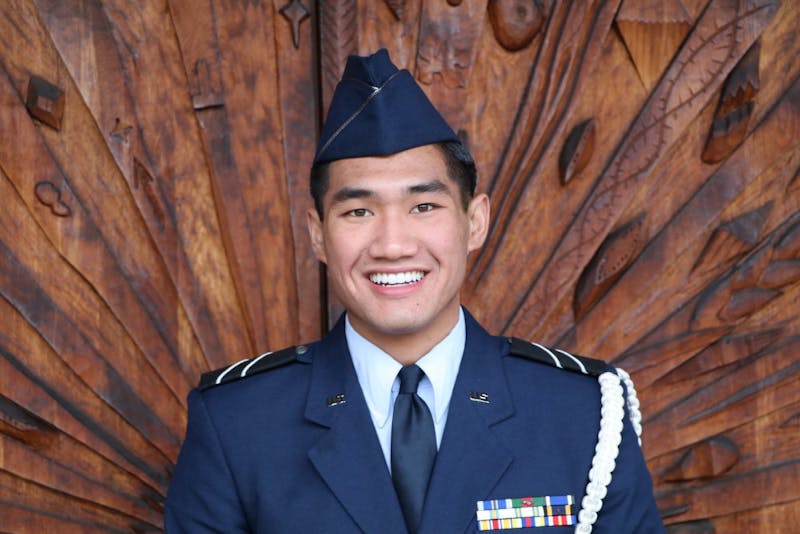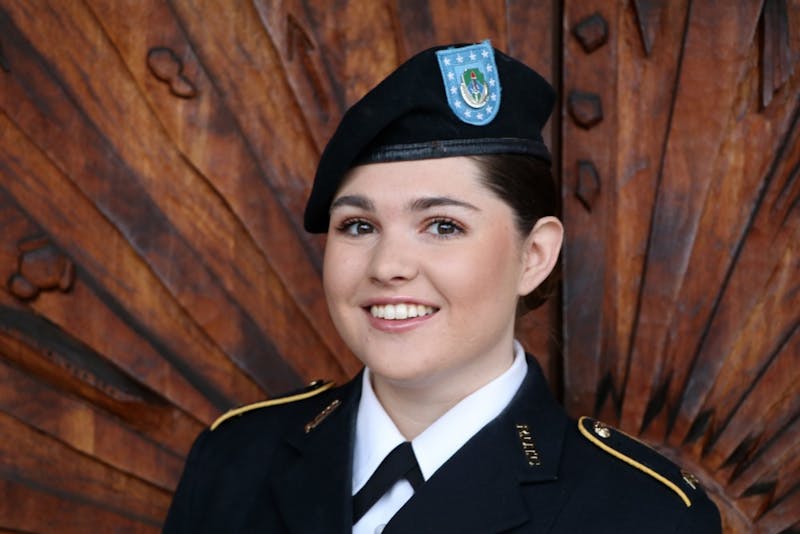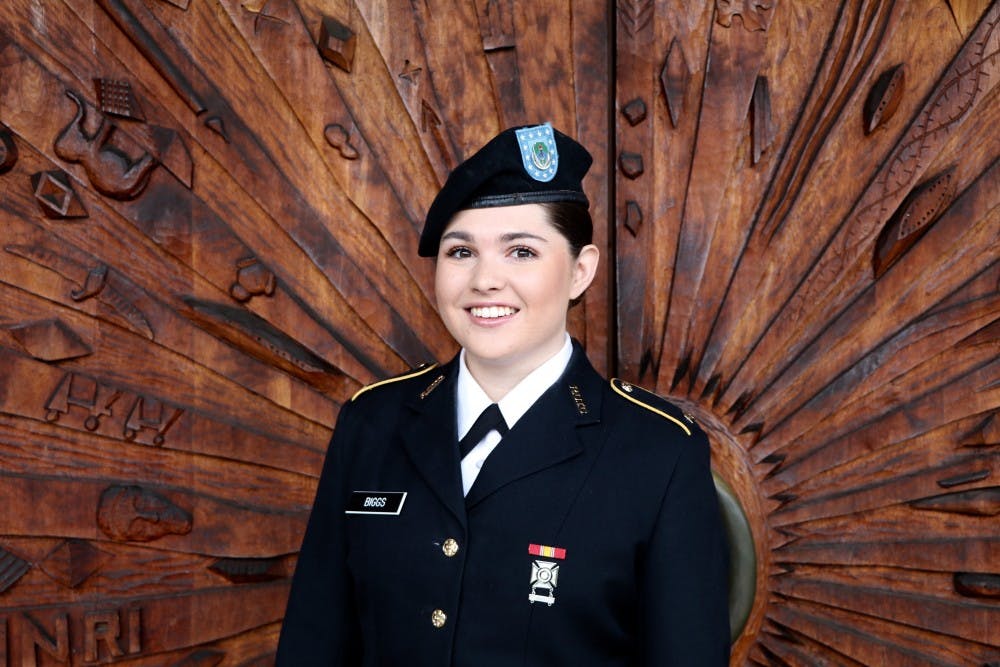Any given time on a Tuesday, Pilots can spot men and women in a pristine blue uniform marching along to their classes. Students participating in UP’s ROTC (Reserve Officers' Training Corps) program are a visible and integral part of campus, but very few know what an average day for
The Beacon spoke with two different ROTC students to get a glimpse into an average day as an officer in training.
Air Force ROTC

It’s a Tuesday morning and sophomore cadet AS200 Chad Lee’s alarm blares at 06:50—service day.
He dons his dress blues, which are his formal service uniform, the ones that he spent all Sunday and Monday prepping to wear. His jacket is fastened precisely with ribbons and awards just aligned to his shoulders. His collared shirt is ironed. His shoes are shiny enough to see his own reflection — it took him six hours to shine them from completely matte to sparkling.
Find any Air Force cadet on Tuesdays and they’ll have a lint roller that they utilize constantly throughout the day in order to pass inspection.
At 08:00, he’s sitting in his aerospace studies class, where he’s learning the history of Air Force war in order to be a more worldly officer. After class, Lee preps for leadership laboratory until it’s time to head over at 16:10 for officer training.
In BC Auditorium, Lee practices clearing a room in an emergency and guarding a gate at a base. Following lab, Lee goes to physical training from 18:35 to 19:35. This is in addition to his 06:30-07:30 physical
“Early is on time, on time is late, late is don’t show up,” Lee said.
Though this day seems packed, Lee says it’s really just the beginning.
“This schedule is very basic, it’s the absolute minimum you need to do,” Lee said. “To really succeed in ROTC, you need to exceed standards, so you volunteer and get involved.”
He does this by taking on the role of General Military Course Advisor. Lee mentors a group of freshman through their first year of ROTC, passing on his knowledge from his own experience. Lee acts as a liaison between upper and underclassmen. ROTC doesn’t stop for Lee on the weekdays. On Sundays, he practices rifle spinning and is a color guard captain.
Before coming to UP, Lee’s parents were not inclined to have their son in the military. Despite this, Lee remembers always being fascinated by and interested in serving his country. During Weekend on the Bluff as a prospective student, by some perfect chance, Lee went to the Air Force ROTC presentation, which changed the course of his life. By talking to the cadre, who are his commanding officers, he and his parents learned that the military isn’t as stereotypical as they had thought it to be. The experience opened their eyes to the idea of their son serving this country.
Looking back today, Lee said of his decision: “100 percent-110 percent, I would make it again. I’ve really found a life in it. ROTC asks a lot from you but I couldn’t imagine my life without it. And I’m
Under contract with the Air Force, Lee is set to serve four years of active duty upon graduation as a second lieutenant, a leadership position.
“It’s crazy. Day one in the Air Force and you’re expected to lead,” Lee said. “But I’m excited. I love to lead.”
Lee’s dream job is to be a part of the combat rescue team. He wants to help people who are unfortunately living through possibly the hardest day in their lives, medically rescuing them and taking them home.
In the meantime, it’s nothing but grind for Lee.
“It’s gotten hard countless times, but whenever it gets hard, I just imagine the things that got me to where I am and why I joined,” Lee said. “Thinking about my future in the air force gets me going every day.”
Army ROTC

It’s the same Tuesday morning with the same early morning alarm going off—but this time, it’s for junior MS3 Beth Biggs. Dressing carefully in her service uniform, Biggs reports to her military science class — the classroom portion
Every Monday, Wednesday and Friday, Biggs heads to the turf field for 06:30 physical training, rain or shine. According to Biggs, “If it ain’t raining, it ain’t training.”
It doesn’t stop there for Biggs.
One weekend every other month, Biggs shadows a second lieutenant in order experience what she’ll be expected to do upon graduation May 2018. Biggs is also a squad leader, and while still a cadet, she takes care of 9 other cadets. She holds squad meetings in which she briefs them on the Op-Order, goes over the mission of what they’re doing at
Biggs joined the program as a sophomore, which was an unconventional route to joining ROTC. She first had to sign up, non-contracted, and enlist after two intense and grueling months of basic training in the field. Biggs said she was broken down and built back up again.
“I’m nervous but I’m pumped because it pushes me one step closer to where I want to be,” Biggs said.
The junior has always had a fascination with the military stories about her
“I’ve always wanted to do something with my life that is impactful,” Biggs said. “I want to leave a legacy behind.”
When she saw ROTC on campus, Biggs realized that her dream was achievable right here at UP. This summer, she’ll be traveling to Fort Knox, Ky. for field training and in two years, she’ll be committed for 8 years to National Guard or Reserve, but always ready to be deployed. Her dream is to be an adjutant general
To get to where she is today, Biggs admits it has been a struggle, yet she is proud of being a stronger person. When it gets hard, she tells herself: “Just keep pushing because failure is not an option, you have no choice but to drive on, you can only take a step forward.”








